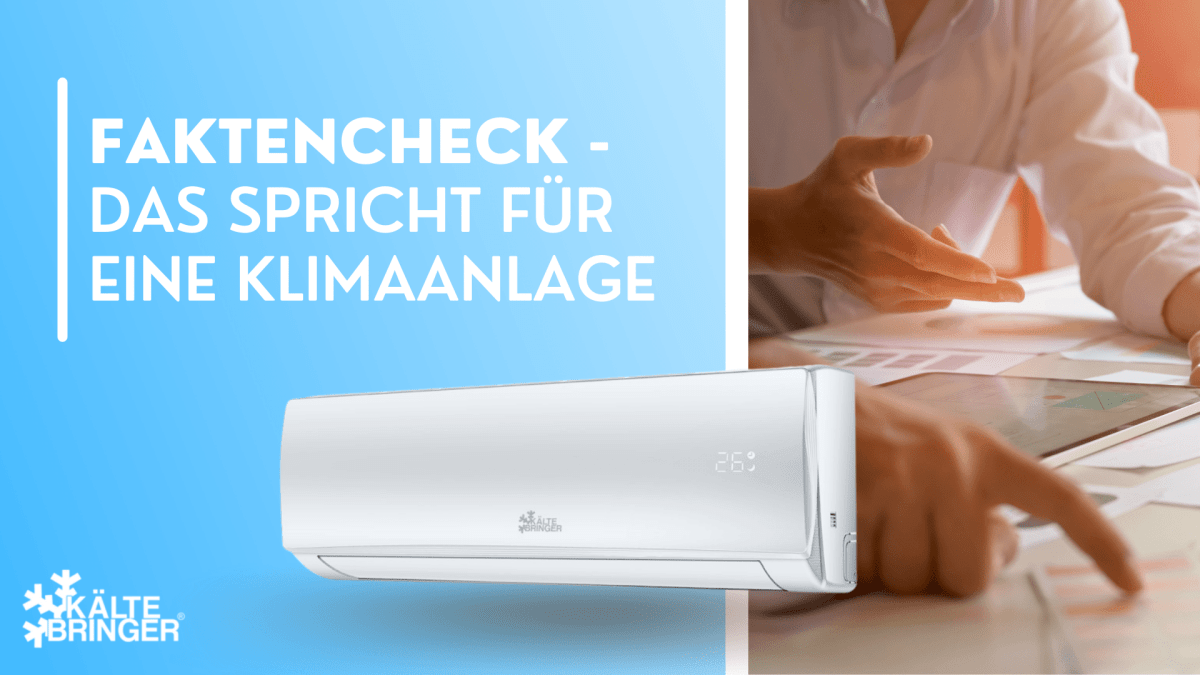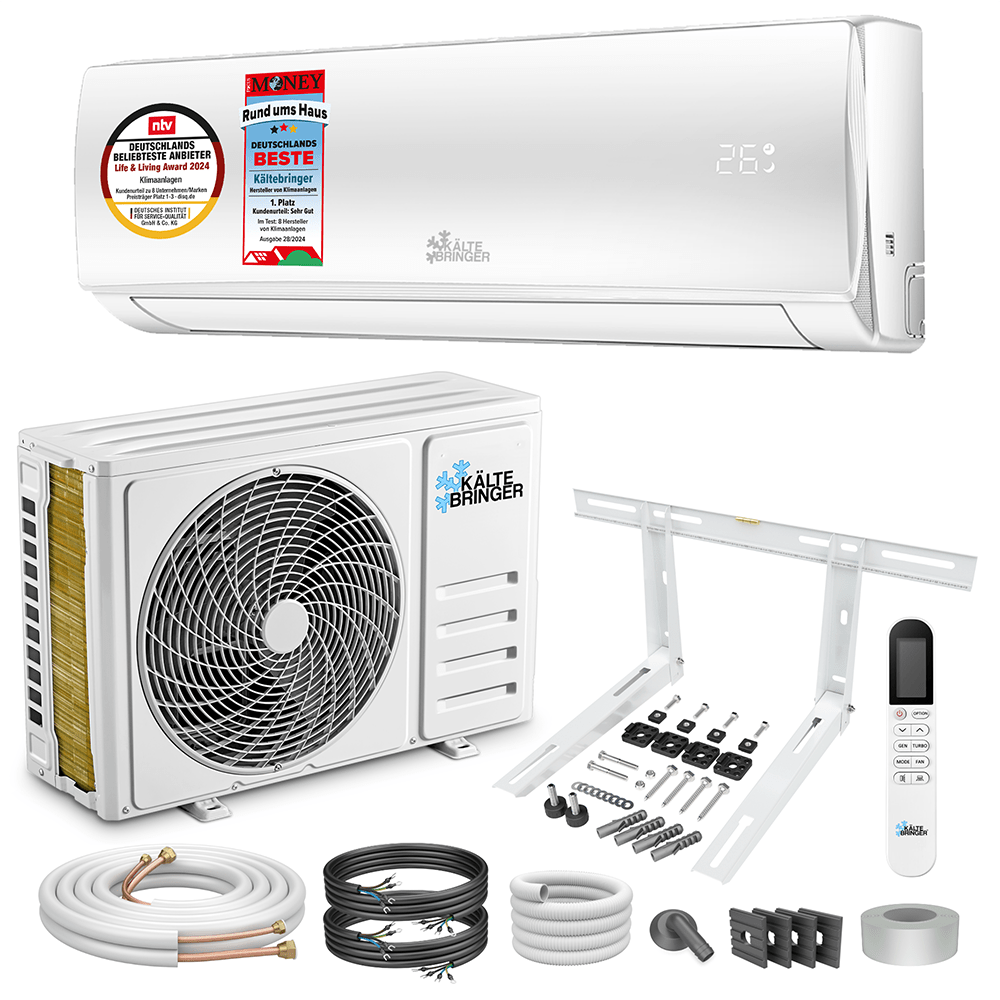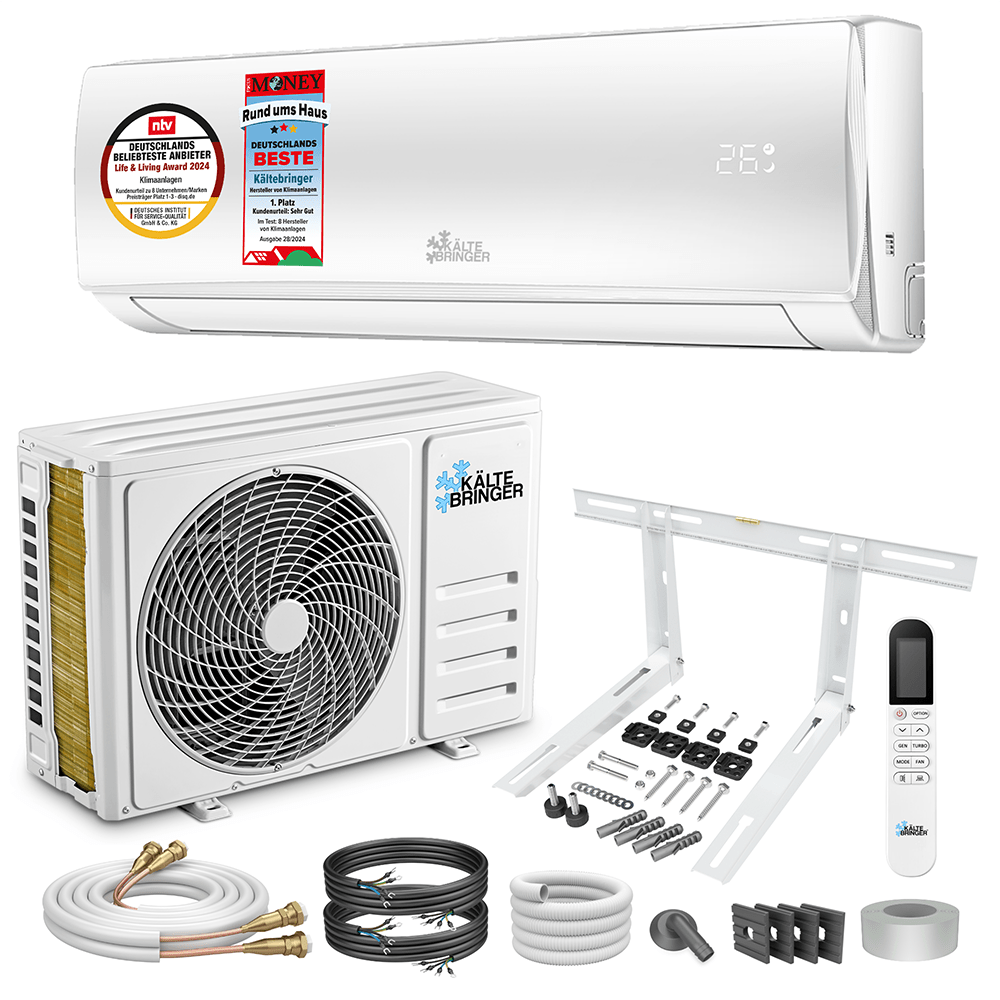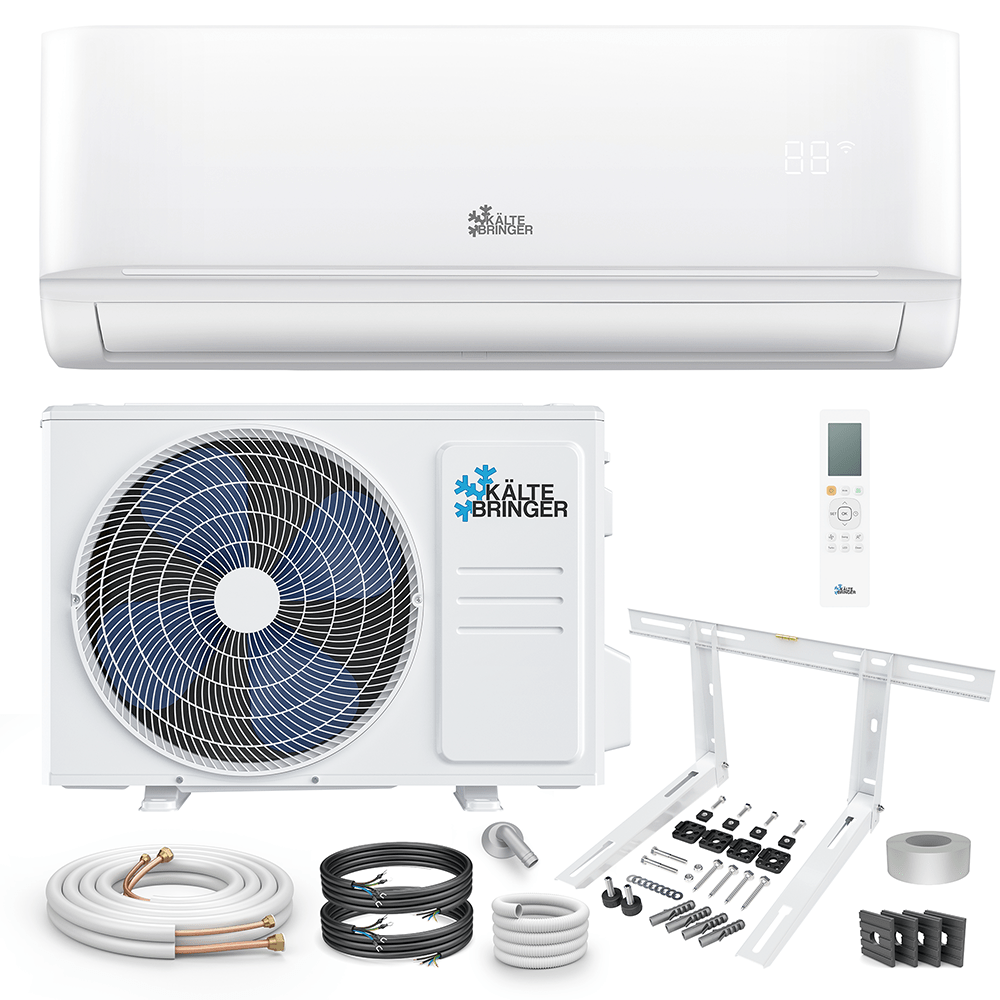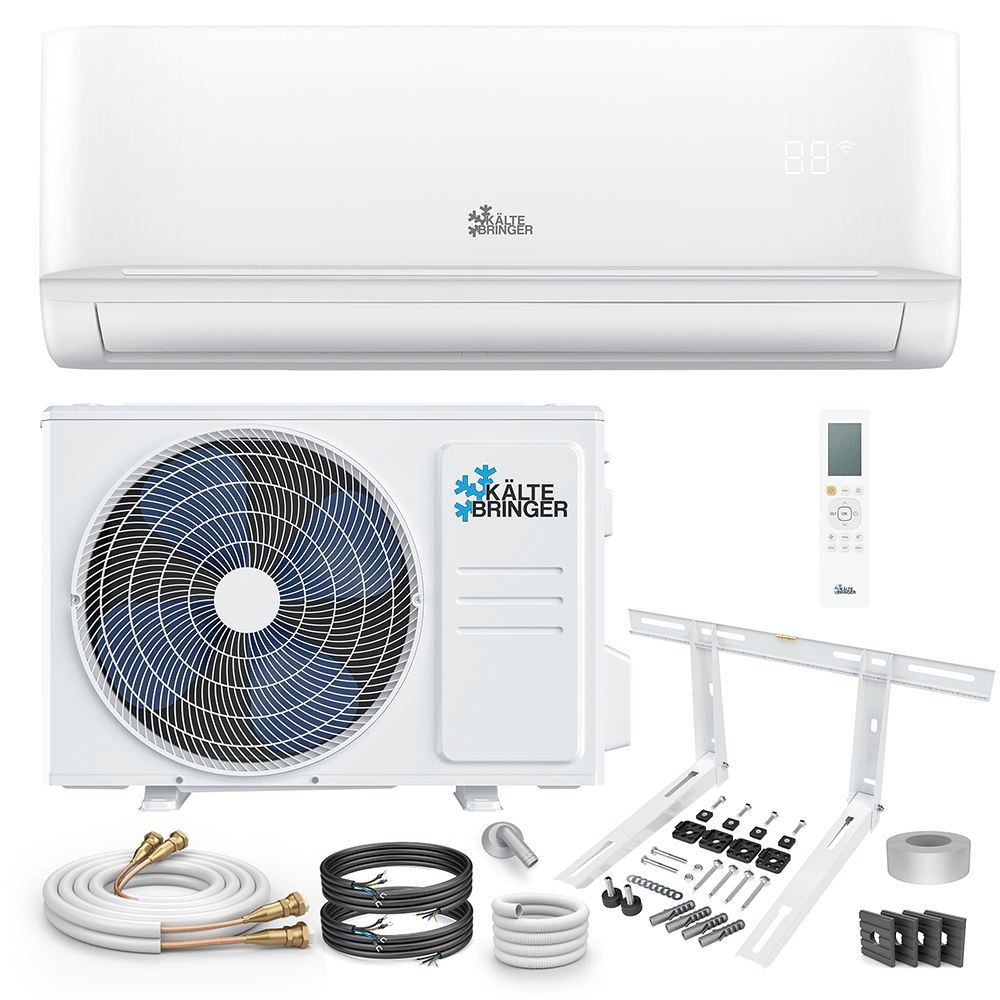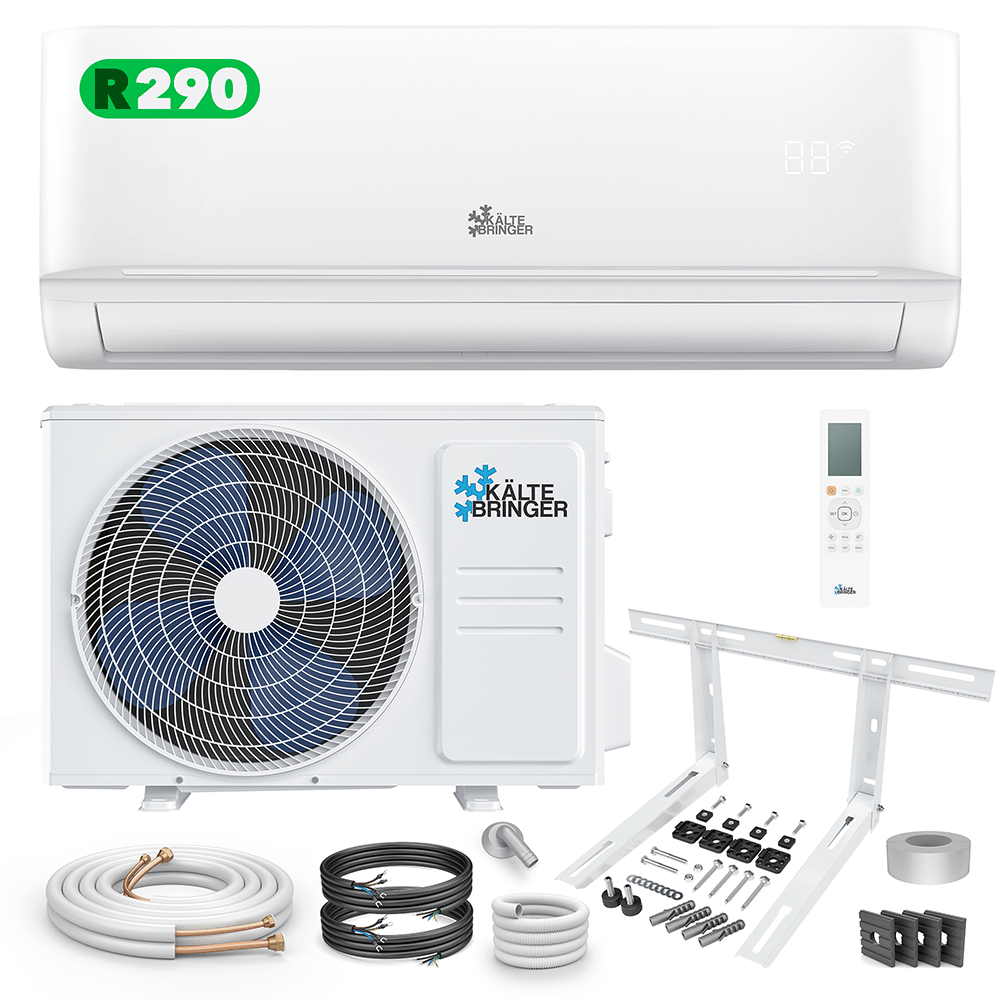Anyone who decides to have air conditioning in their home has many advantages in summer - because in addition to a pleasant room temperature, the devices also improve the ability to concentrate. The important night's rest is also significantly more relaxed with the help of the devices at outside temperatures above 30 degrees. However, many people hesitate to buy an air conditioner. This is mainly due to the ignorance that still exists around the devices. We have therefore summarized what needs to be considered with an air conditioner in your own home!
The different types of air conditioning
In the private sector, two types of air conditioning are used particularly frequently: split and monoblock air conditioning. Both devices each have their advantages and disadvantages, for a better understanding we would like to briefly explain what the differences are.
Monobloc air conditioning: This type of air conditioning is especially popular in rented apartments. This is mainly due to the fact that the devices do not require an external system to function. Often only an exhaust air hose is laid out of the window, which removes the warm air from a room. However, they have the disadvantage that a window always has to be opened slightly for operation. The cooling performance is also not as good as one of the other air conditioner models compared to the energy consumption. Another disadvantage of the systems is the often high operating volume.
Split air conditioners: From the basic principle, the split air conditioner works the same as a monobloc device. The system draws in warm air and guides it through a cooling circuit to temper a room. The big difference with this model, however, is that there are no annoying hoses. Split systems consist of an indoor and an outdoor unit, which are connected to each other through the wall. Several indoor units can often be operated with just one outdoor unit. This air conditioner has the advantage of being very quiet and cooling a room much more efficiently than a monobloc unit. However, due to the structural change to the building, it is not possible for everyone to install a split air conditioner.
At Kältebringer you have the choice: either a split air conditioner or a monobloc unit. Both systems have their advantages and disadvantages, but we would like to go into more detail below about the split air conditioning system. In the next section we will explain why this type of air conditioning is also a big plus in winter.
Heating with air conditioning: An underestimated feature
Split air-conditioning systems impress, among other things, with their excellent cooling performance. A Kaltbringer device converts 1 kWh of energy into 6 kWh of cooling capacity, the energy efficiency is higher than that of almost any other air conditioning system. But there is one thing that many people don't think of when they hear about air conditioning: heating. But here, too, modern split systems are convincing, because in many cases they have a heat pump for the winter.
A heat pump extracts heat from the environment, compresses it and emits it again – to put it simply. You can use various sources, all of which are provided by the environment. A lot of heat is stored in the air, water and also in the earth. Above a certain depth, the ground has the same temperature throughout the year, so the heat pump can work very well here even in winter.
Split air conditioners work with an air-to-air heat pump. Heat is thus extracted from the ambient air and this is released back into the room air. In the depths of winter, hardly any heat can be gained in this way, but the system is particularly effective in autumn and spring. With a cold bringer air conditioner, it is very easy to switch between heating and cooling, no specialist knowledge is required for this. The automatic adjustment to the ambient air is also no problem. Example of this: You would like to have a constant 22 degrees in your living room. If the outside temperature falls below this, the air conditioning system starts to heat up automatically because cooling is no longer required.
The correct location of your air conditioner
Many people do not want to have air conditioning in every room - this is mainly due to the complicated connection of the indoor units to an outdoor unit, or the alternative of purchasing several outdoor units. It is therefore important that you choose the right room when it comes to air conditioning.
The following rooms are particularly popular for air conditioning: living and dining area, bedroom and conservatory. You usually spend most of your time in the living room when you are in your apartment. You can also offer guests a comfortable temperature when they are invited to your place. Air conditioning is also a real plus for the health of children playing in summer.
According to experts, the bedroom should have the same temperature all year round. Between 16-18 degrees, that's the recommended sleeping temperature for a normal adult. The need for warmth increases with age, and then temperatures of up to 20 degrees are perfectly fine. Humidity can also contribute to poor sleep, so it should not be above 60 percent. A split air conditioner can ensure all of these conditions. It keeps the previously set temperature constant and can also massively reduce the humidity.
Cold bringer air conditioners convince with a very quiet operating volume, especially in night mode. When this mode is activated, the devices are only noticeable with a volume of 19 decibels, roughly comparable to rustling leaves. In addition, operation is child's play: all settings can be controlled using a mobile app or remote control. Thanks to integrated self-cleaning programs and a two-way condensate drain, the device does not require any complicated maintenance.
Tips before buying an air conditioner
Before you decide on a specific model of air conditioner, you should clarify a few important things.
On the one hand, there are the structural requirements. If you are renting, the installation of a split air conditioner must first be approved. The attachment of the outdoor unit also has consequences, because the system also causes noise. If you own a home, you'll have fewer problems, but some states require split units to be licensed. When can air conditioning not be approved? Sometimes the devices are not approved if they do not fit into the surrounding environment or cause too much noise. However, these are isolated cases.
You should also think carefully about where your air conditioner is best placed. Once installed and the hole drilled in the wall, the location cannot be changed. We recommend the advice of a professional to choose the right location. On our website you will also find many guides on the subject of air conditioning.



